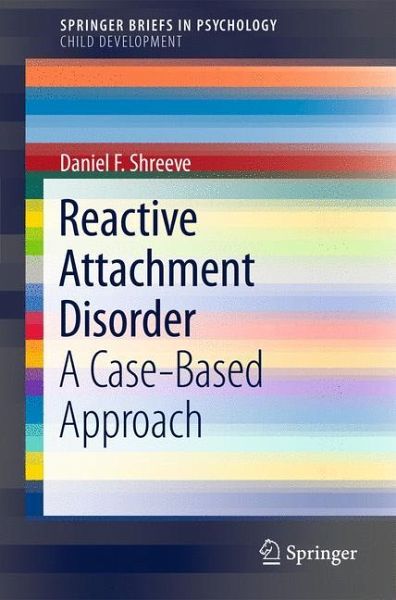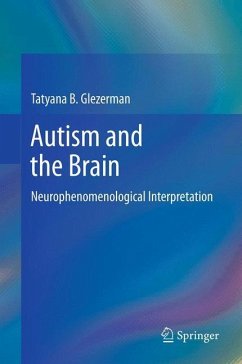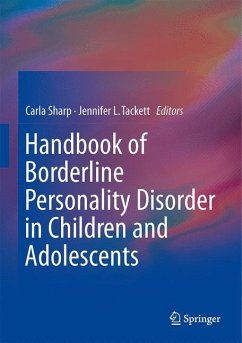
Reactive Attachment Disorder
A Case-Based Approach

PAYBACK Punkte
27 °P sammeln!
A child's close bond with mother, father, or guardian usually provides a foundation for trust in all future attachments. Children deprived of early and healthy dependency-who do not form normal attachment with their caregivers-may later suffer from Reactive Attachment Disorder (RAD). This childhood disorder is characterized by a general failure in social relationships resulting from pathogenic care.Although first included in the third edition of the Diagnostic and Statistical Manual (DSM-III) in 1980, RAD is one of the more uncommon and understudied forms of psychopathology. Reactive Attachmen...
A child's close bond with mother, father, or guardian usually provides a foundation for trust in all future attachments. Children deprived of early and healthy dependency-who do not form normal attachment with their caregivers-may later suffer from Reactive Attachment Disorder (RAD). This childhood disorder is characterized by a general failure in social relationships resulting from pathogenic care.
Although first included in the third edition of the Diagnostic and Statistical Manual (DSM-III) in 1980, RAD is one of the more uncommon and understudied forms of psychopathology. Reactive Attachment Disorder: A Case-Based Approach adds to a now growing research base, providing scholars and clinicians with a well-rounded analysis of RAD and suggested treatments. The case-based approach used in this Brief follows the representative case of "Jorge," presented as unfolding over time and structured to illustrate challenges of diagnosis, to show examples of co-morbidity, and to provoke reflection on what questions may arise during treatment. Readers are asked to appraise the overlap with other clinical syndromes, the forms of psychotherapy which may apply, and the potential role of psychiatric medications as part of a comprehensive treatment plan.
Although first included in the third edition of the Diagnostic and Statistical Manual (DSM-III) in 1980, RAD is one of the more uncommon and understudied forms of psychopathology. Reactive Attachment Disorder: A Case-Based Approach adds to a now growing research base, providing scholars and clinicians with a well-rounded analysis of RAD and suggested treatments. The case-based approach used in this Brief follows the representative case of "Jorge," presented as unfolding over time and structured to illustrate challenges of diagnosis, to show examples of co-morbidity, and to provoke reflection on what questions may arise during treatment. Readers are asked to appraise the overlap with other clinical syndromes, the forms of psychotherapy which may apply, and the potential role of psychiatric medications as part of a comprehensive treatment plan.














